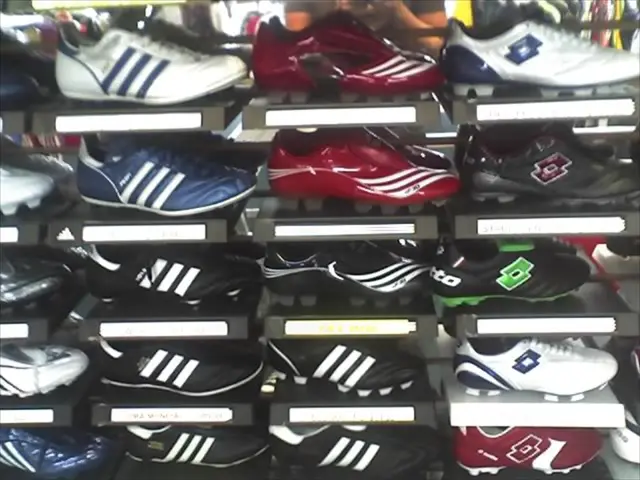New age of clothing industry: Will Express continue to thrive?
All Style and No Substance: The Struggling Case of Express, an Iconic Retailer in Crisis
For nearly four decades, Express has been synonymous with business casual wear, rocking the mall sales scene. Established in 1980, it was the offspring of The Limited, boasting a physical presence that made it a key player in the fashion world. However, as the retail landscape evolved and the pandemic redefined the way we dress, Express found itself on the losing side.
In this new era of comfort and athleisure, the retailer has been struggling to keep up. Earlier this month, it reported a dismal Q2, showing a 6.4% drop in net sales to $435.3 million, and a staggering $44.1 million loss compared to a $7 million net income the previous year. Inventory soared by 20%, while store comps fell 21%, e-commerce dropped 1%, and outlet store comps nosedived 17%.
Given these bleak figures, it's no surprise that Express is stepping up its cost-cutting measures, aiming to regain sales and profit momentum. The company has enlisted advisers to scrutinize its business model in hopes of achieving an annualized $200 million in savings by 2025. But what went wrong for one-time trendsetter, Express?
The roots of its challenges can be traced back to three years ago, according to Eric Beder, the CEO and senior research analyst at Small Cap Consumer Research. During the pandemic, consumers said goodbye to business casual and work clothing in general, as the shift to work-from-home became the new norm. Casual wear and comfort were now king. And Express, it seemed, had gotten far too basic to keep up.
"If you're that basic, you lose the ability to have better pricing," Beder pointed out. "So management at Express is trying to find the right mix, the right balance between fashion and basics, to generate good returns, without worrying about inventory issues."
The Fine Line between Success and Failure
The fashion world is a high-stakes game, where success relies on a delicate balance between staying true to your brand and staying ahead of ever-evolving consumer demands. Express has struggled to find that balance, vacillating between basics and fashion trends.
With a near 50-50 mix of men's and women's apparel, Express occupies a unique position in retail, but it has failed to truly differentiate itself from the competition, according to Shawn Grain Carter, a retail industry consultant and professor at the Fashion Institute of Technology at the State University of New York.
Express' reliance on its store footprint might explain its lackluster brand awareness, especially among younger consumers. In the era of online shopping, brands must be ever-present in the consciousness of potential customers. If they're not shopping in-store, they're shopping online, and if they're unfamiliar with your brand, you lose them.
A Chance at Redemption
Express has made some promising moves to regain its footing. In January, it forged a strategic partnership with WHP Global, which injected $235 million into the company and gave it the ability to change its business at a reasonable cost.
The partnership came with some strings, though. Express will have to fork over around $60 million in guaranteed minimum royalties to WHP over the next five years, with the figure set to rise by $1 million per year after the fifth contract year. In addition, Express will pay royalties of 3.25% – 3.5% of net sales from retail sales of licensed goods, as well as 8% royalties from wholesale sales of licensed goods.
Beder also suspects that Express and WHP will expand the brand globally in the near future, potentially opening stores in countries like the Middle East, Southeast Asia, and Europe.
But these moves alone might not be enough to revive the brand. As Neil Saunders, managing director of GlobalData, succinctly put it, “In our view, very little about the Express proposition stands out. The assortment is bland, styles are mediocre, and prices are somewhat too expensive for the type of products being offered. There isn't anywhere near enough excitement and oomph to carry the retailer through a period of challenge in the consumer economy.”
No Shortcuts to the Top
In a recent move, Express sold Bonobos (a men's apparel brand it acquired from Walmart in 2021) to WHP Global for $75 million. The deal indicates that the company is ramping up its efforts to focus on its core brand, as well as drive growth through strategic acquisitions.
Express' turnaround strategy includes expanding its e-commerce offerings, recognizing the importance of catering to the digital-native younger generation. The retailer has already opened a handful of Express Edit stores, a smaller format concept introduced in 2021, with 11 stores in seven states as of last fall.
However, with competition from well-established casual wear brands and a changing retail landscape, Express must tread carefully to avoid sliding into irrelevance. Time will tell if the retailer can navigate the treacherous waters of the fashion world and find its way back to the top. But one thing is certain – Express must respond swiftly and adapt to the evolving demands of consumers to stay afloat.
- The pandemic, with its redefinition of dressing norms, has posed a significant challenge for Express, a retailer known for business casual wear since 1980.
- In the era of comfort and athleisure, Express has struggled to compete, reporting a 6.4% drop in net sales for Q2 and a staggering loss of $44.1 million.
- As a result, Express is implementing cost-cutting measures, aiming to achieve an annualized $200 million in savings by 2025.
- The roots of Express' struggles can be traced back to three years ago, according to Eric Beder, CEO and senior research analyst at Small Cap Consumer Research.
- Consumers have ditched work clothing in favor of casual wear during the pandemic, leaving Express' business casual offerings behind.
- Beder suggests that Express needs to strike a balance between fashion and basics to generate returns without inventory issues.
- The fashion industry is a high-stakes game, where success relies on a delicate balance between staying true to the brand and staying ahead of consumer demands.
- Express has struggled to find this balance, vacillating between basics and trends.
- Shawn Grain Carter, a retail industry consultant and professor at the Fashion Institute of Technology, believes Express needs to differentiate itself from the competition to succeed.
- Express' lackluster brand awareness, especially among younger consumers, may stem from its reliance on physical stores in the era of online shopping.
- In January, Express forged a strategic partnership with WHP Global, injecting $235 million into the company and providing the opportunity to change its business at a reasonable cost.
- The partnership comes with requirements for guaranteed minimum royalties and royalties on net sales, and Beder suspects global expansion may be a future move.
- Neil Saunders of GlobalData points out that very little about Express' proposition stands out, citing bland assortments, mediocre styles, and somewhat expensive prices.
- To regain its footing, Express has sold Bonobos, focusing on its core brand and driving growth through strategic acquisitions. Express is also expanding its e-commerce offerings to cater to digital-native younger consumers, but must navigate competition and a changing retail landscape carefully to avoid becoming irrelevant by 2025.







